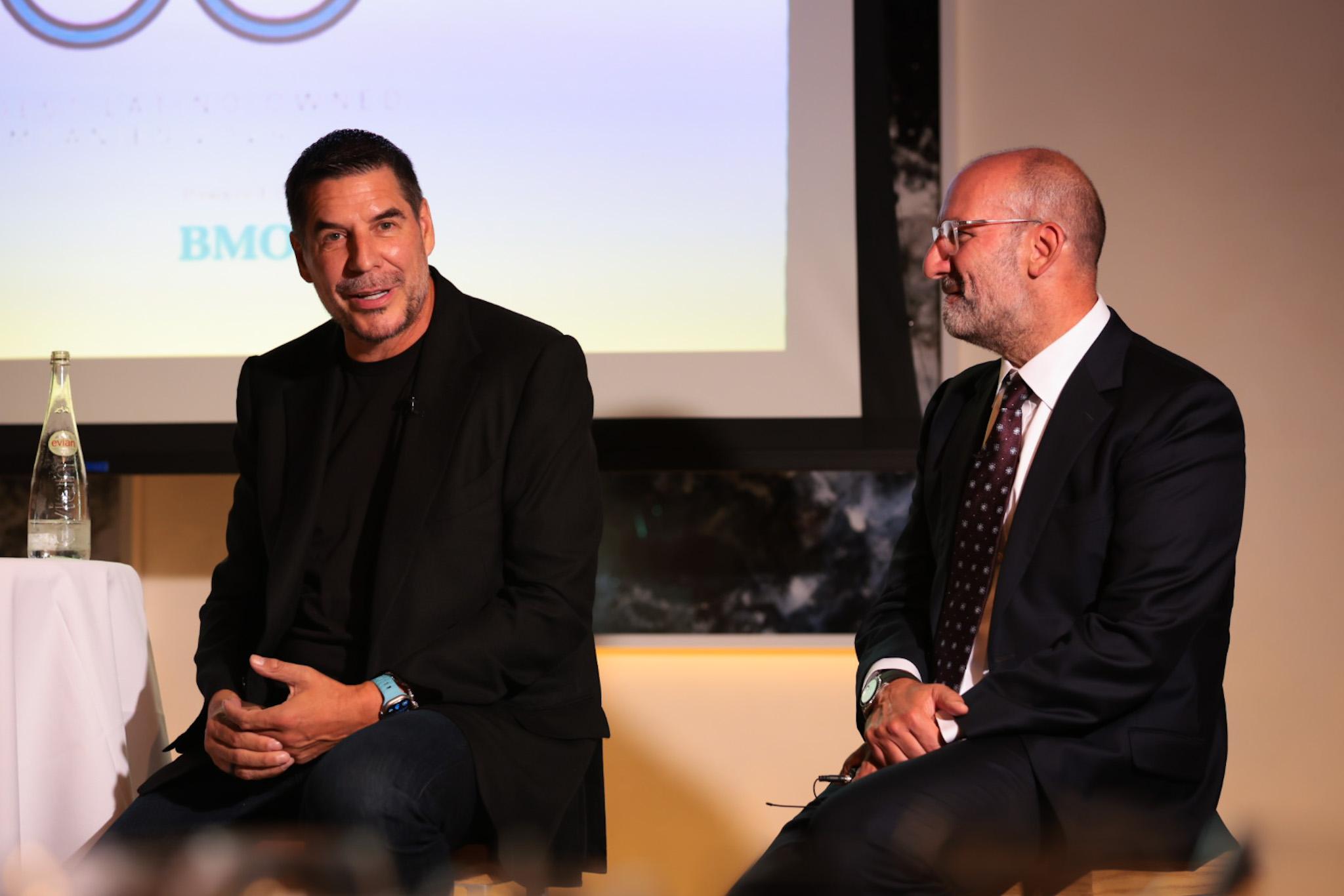Celebrating Latino Business Leaders and Expanding the Segment

Latinos may be the largest minority group in the United States, but you wouldn’t know it by looking at the composition of the C-suite at the largest companies across the nation. A decade ago, just two Latino CEOs were overseeing Fortune 500 companies – today, just 14 hold a top office. Although representation has improved, much more work needs to be done.
To help remove barriers to inclusion and expand our business in one of the fastest growing segments in U.S., BMO’s Economic Equity Advisory Group partnered with Latino Leaders magazine to rank Latino-owned businesses in the U.S. by revenue. The Latino Leaders Index500, Powered by BMO, aims to help better understand the needs of this important segment of the economy. Today, these companies account for more than US$134 billion in annual combined revenue and the overall Latino GDP is estimated at US$3.2 trillion in the U.S. making it the fifth largest economy in the world*.
On August 5, we honored many of those leaders in New York. At the event, I had the opportunity to sit down with Marcelo Claure, a globally recognized entrepreneur, investor, and Founder & CEO of Claure Group. As one of the early Latino leaders to break into the C-Suite as CEO of Sprint, I wanted to share Claure’s perspective on his experience as a Latino entrepreneur and where he sees opportunities.
Markets Plus is live on all major channels including Apple, and Spotify.
Start listening to our library of award-winning podcasts.
The path to success
Claure has an impressive track record of turning around businesses and orchestrating highly complex, multi-billion-dollar deals. He’s also sparked an ambitious plan to give phones and computers to underprivileged children to help them gain access to the internet. As impressive as his credentials are, what struck me most about our conversation was his early days as a budding entrepreneur.
Before running one of the largest carriers in the country, Claure was selling phones out of the trunk of his car and aspiring to be included in the original Latino Leaders ranking. When he sold his company, he more than achieved his dream, elevating his company to become one of the world’s largest mobile phone distribution businesses, selling one of every six phones in the world, with distribution agreements with Apple and Motorola.
Although the life of an entrepreneur is hard, being Latino added additional obstacles, particularly when it came to raising equity. “When I had to go raise money, we were already a billion-dollar company, but it’s incredibly hard to raise money when you’re Hispanic,” he said.
Claure experienced this firsthand. While his competitors would trade at high multiples, some bankers said he should be willing to accept a lower valuation. “It was painful,” he said. “People can’t believe your story of how you grow this multi-billion-dollar business,” he explained. Fortunately, he found the right financing partner to help him grow.
To help spare other Latinos that experience, when Claure was COO of Softbank Group, he founded the Open Opportunities Fund, a venture capital firm focused on backing Black- and Latino-founded tech companies. “Nothing gives me more pride than seeing Latino entrepreneurs thrive,” he said.
Identifying leaders
Today, Claure heads up his own investment company. Rather than take on another CEO role, he said his focus is now on using his experience to support other leaders. “I want to be able to invest my capital, my relationships and my experience into different CEOs, young entrepreneurs or CEOs where I believe I can help change the trajectory of their business,” he said.
Claure’s experience working his way up has shaped the way he looks for companies to invest in. “I like to invest in people who are thinking more about the future,” he told the packed room of Latino leaders. “My best investments are in businesses run by leaders who were operators at one point in time, who actually understand the essence of a business and what makes a business successful.
Another lesson he’s learned over his career is the importance of surrounding yourself with a great team. In his view, the worst-performing investments are those where everything depends on an individual.
Apart from supporting Latino leaders, Claure is passionate about artificial intelligence (AI) and the potential ways it can impact society. “I believe that AI is the biggest revolution in our history,” he said. “The next 10 years are going to be more disruptive than the past thousands of years combined.” In Claure’s view, no company or industry will be spared.
“I’m investing in things that I’m passionate about and are going to basically change the world,” he said. “It’s fascinating to see the speed of change and it’s fascinating for me to interact with entrepreneurs who remind me who I was 30 years ago.”
Breaking down barriers
Like Claure, BMO promotes equal access to opportunities that enable growth to help customers, colleagues, and the communities we serve. One of the ways we’re achieving this goal is through BMO EMpower 2.0, our more than $40 billion community benefits plan to help Latino business owners gain better access to capital, educational resources, and meaningful networking opportunities.
*According to The Official 2023 LDC U.S. Latino GDP Report™ by Latino Donor Collaborative.